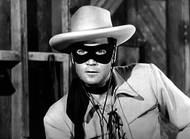What does a mask do?
Posted by Ieronimus S. on Jun 11th 2020
What does a mask do?
It "masks" something. It conceals something from view. Of all the societal changes that have occurred during the Covid-19 pandemic the one that I have found the strangest is the mask phenomenon. The toilet paper hoarding was surprising, but we are all addicted to convenience, so I could understand what was going through people's heads. I have never worn a mask and decided long ago, that my children would never see me wearing one, out of principle. If anyone is feeling self conscience for wearing one that is not my intention. I know that some have no choice in the matter. I am merely trying to explain that the masks are just a tool. A means to an end. I have known from day one that the masks were really a vehicle to spread Fear. I will not get into a debate about the effectiveness or non-effectiveness of the masks. By reading this you already know that I do not believe the general public needs to wear them. I understand that people in direct contact with sick people, bodily fluids, or waste management have good reasons to want to keep fluid particles off of them. But the fact remains, the air we breathe is not filled with Covid-19. You will not breathe it in your car, or on a walk, or shopping in the store. I knew there had to be something more to it. Even more than Fear..
Then today it hit me (thank you Holy Spirit). Deindividualization....I word that has not been in my head since college. Deindividualization is a process by which a person is made less aware of their individuality as a unique person, made in the image of God, by God, with a free will. How is this accomplished and for what purpose? Its purpose has been practical at times, but it has also been used for evil. Why do both soldiers and prisoners wear uniforms? Why do they both shave their heads? Why are they both assigned a number? Jews put into concentration camps went through the same process, the numbers being tattooed on their wrist. The underlining purpose of deindividualization is always to get people to think as a group, not as an individual. If everyone is thinking something different it is harder to control a large group of people regardless if the intentions are good or bad. You can understand this would have a tactical and practical advantage for the military. Looking similar, wearing uniforms, and having a count of all your soldiers helps them to act as a cohesive fighting unit. In the case of the prison, shaving their heads, wearing uniforms, and keeping count of the inmates keeps them in-line and gets them to follow the rules. In the case of the holocaust it was used to humiliate, dehumanize, and keep people subservient. What does a mask do? The mask hides your face. It hides your unique smile, your emotions, your joy, your sadness, and your humanness. A majority of the emotions and expressions you make. It affects how you interact with the world and it affects how people see you. Since covid-19 began I have ran into several people that I recognized their voice, but I couldn't identify because of the mask. People who knew me, but I didn't know them. A mask may or may not keep bodily fluids off of you, but it also hides your individuality. To have riots and nation wide anarchy on such a grand unified scale, the masks had to come first. The masks were a means to an end. If you are not yet convinced, keep reading....
Leon Festinger, a social psychologist, coined the term “deindividualization” in the 1950s.
deindividualization is thought to be facilitated be a few different things, including:
Anonymity: When people are part of a crowd, their personal identity is less likely to be singled out. This lack of accountability allows them to engage in behavior that might not be socially acceptable if they were acting alone.
Contagion: In group settings, behavior is known to spread quickly from person to person.
Suggestibility: It’s theorized that people in crowds may be more suggestible, causing them to be more open to imitating the beliefs or actions of their group members.
deindividualization: a phenomenon in which people engage in seemingly impulsive, deviant, and sometimes violent acts in situations in which they believe they cannot be personally identified (e.g., in groups and crowds and on the Internet).

